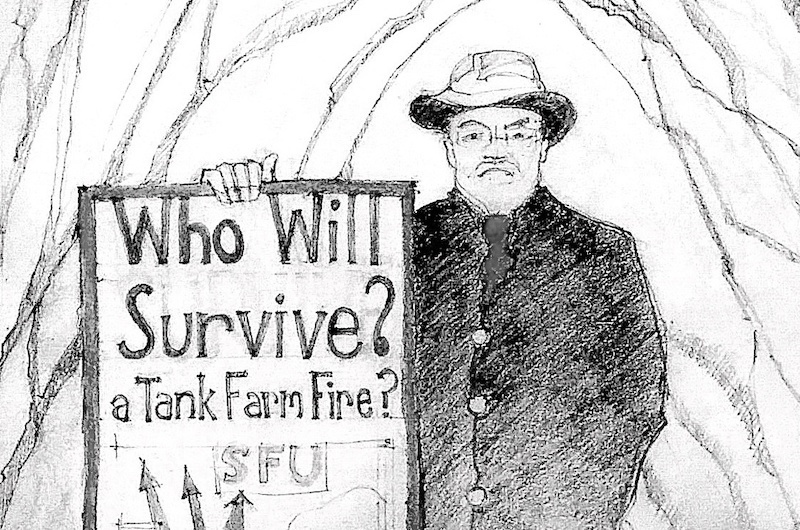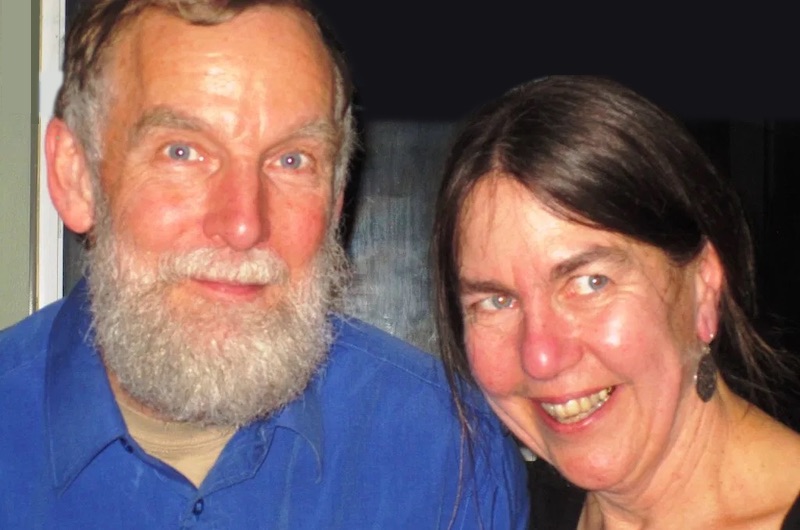In September, the Vancouver Unitarians were proud to join 200+ organizations in signing the following open letter calling on the B.C. government to implement climate action of the scale and urgency required. This coming Thursday, Oct. 28 Seth Klein, one of the initiators of this new climate effort, will kick off a special series we’re hosting on Faith, Spirituality and the Climate Crisis. If you’re interested in getting more involved in climate action here at UCV, consider getting involved in our Environment Team!
*
We write on behalf of diverse environmental, Indigenous, labour, health, business, local government, academic, youth and faith communities who collectively represent well over one million British Columbians.
We call on the B.C. government to recognize the urgency and alarm that people all over the province are feeling as the climate crisis directly impacts our communities and our health: deadly heat waves, wildfires, drought, floods, crop failure, fisheries collapse and costly evacuations and infrastructure damage. These climate-related impacts are unprecedented and intensifying. Indigenous peoples stand to be disproportionately impacted by climate events despite successfully taking care of the land since time immemorial.
The latest report from the Intergovernmental Panel on Climate Change is a “code red” for humanity. The International Energy Agency has called on world governments to immediately stop investments in and approvals of new oil and gas projects. The provincial government’s CleanBC climate action plan is insufficient to limit warming to 1.5 degrees and will not keep British Columbians safe from the worst impacts of climate change.
We therefore urge the B.C. government to develop and implement a transformative climate emergency plan that recognizes interconnected climate, ecological and social crises; embeds equity, anti-racism and social justice at its core; and upholds Indigenous title and rights as well as treaty rights.
To implement the rapid systemic change that is required, we call on the provincial government to demonstrate the leadership necessary to confront the climate emergency, and immediately undertake the following 10 actions:
1. Set binding climate pollution targets based on science and justice.
Reduce B.C.’s greenhouse gas emissions by approximately 7.5 per cent per year below 2007 levels. Set binding reduction targets of 15 per cent below 2007 levels by 2023; 30 per cent by 2025; 60 per cent by 2030, and 100 per cent by 2040. Review and update targets regularly as climate science evolves.
2. Invest in a thriving, regenerative, zero-emissions economy.
Invest two per cent of B.C.’s gross domestic product, which is $6 billion per year, to advance a zero-emissions economy and create tens of thousands of good jobs. Spend what it takes to immediately reduce greenhouse gas emissions and create new economic institutions to get the job done. Ensure that the economic component of Aboriginal title is recognized through the sharing of benefits and revenues that result.
3. Rapidly wind down all fossil fuel production and use.
Immediately stop all new fossil fuel infrastructure including fracking, oil and gas pipelines, LNG and fossil fuel-derived hydrogen. Rapidly phase out and decommission all existing fossil fuel production and exports.
4. End fossil fuel subsidies and make polluters pay.
End all fossil fuel subsidies and financial incentives by 2022. Ensure that industries that profit from fossil fuel pollution pay their fair share of the resulting climate damage.
5. Leave no one behind.
Ensure a just transition for fossil fuel workers, resource-dependent communities and Indigenous and remote communities impacted by fossil fuel production. It will be critical to collaborate in true partnership with Indigenous peoples in climate action. Prepare our communities for the impacts of the climate crisis to minimize human suffering and infrastructure damage. Support those most vulnerable to climate change impacts.
6. Protect and restore nature.
Protect 30 per cent of terrestrial and marine ecosystems by 2030; support and invest in Indigenous-led conservation initiatives; restore natural ecosystems to enhance ecosystem functions and services, preserve biodiversity, increase carbon sequestration, and improve human and ecosystem resilience to climate impacts. Impose an immediate moratorium on the industrial logging of all old-growth forests which are critical carbon sinks.
7. Invest in local, organic, regenerative agriculture and food systems.
Incentivize carbon storage in soil, restore biodiversity and ensure food sovereignty and food security across the province. Increase consumption of plant-based foods and reduce food waste. Support Indigenous communities that wish to maintain traditional food systems and enhance their food security.
8. Accelerate the transition to zero-emission transportation.
Invest in affordable, accessible and convenient public transit within and between all communities. Reallocate infrastructure funds from highway expansion to transit and active transportation (cycling, rolling and walking). Mandate zero emissions for all new light vehicles by 2027 and all medium- and heavy-duty vehicles by 2030.
9. Accelerate the transition to zero-emission buildings.
Ban new natural gas connections to all new and existing buildings by the end of 2022. Create a Crown corporation to mobilize the workforce to retrofit all existing buildings and eliminate fossil fuel heating by 2035, and to build new affordable zero-emissions buildings.
10. Track and report progress on these actions every year.
Embed all of these actions in legislation to ensure accountability, transparency and inclusion. Establish rolling five-year carbon budgets that decline over time towards zero emissions by 2040 or sooner.
Tackling the climate crisis offers an unprecedented opportunity to generate new, vibrant economic and social wealth as we transform where our energy comes from and how it is used. It offers an opportunity to achieve energy security, ensure food security, develop more sustainable local economies and jobs, transform our buildings, redesign transportation, reduce pollution, improve human health and well-being, and enhance our quality of life. The transition from fossil fuels to a zero-emissions economy has clear benefits for people and natural ecosystems, and is an opportunity to create a more prosperous, just and equitable society.
Every person, every business, every industry and every government has a role to play as we co-ordinate individual and collective actions to create a thriving, resilient and regenerative society that respects its interdependence with healthy ecosystems and a safe climate. British Columbia is positioned to become a visionary world leader and demonstrate that innovative and rapid change is possible as we transition to a zero-emissions economy.
We urge you to seize these opportunities and demonstrate to British Columbians that our government is indeed a true climate leader by implementing the 10 climate emergency actions set out in this letter.
We must act now.




 Starting March 6 and running until June 2022, our next Outreach Opportunity Fund recipient will be the Wild Bird Trust of BC. WBT manages the Conservation Area at Maplewood Flats in North Vancouver. The Trust’s mission is to provide wild birds with sanctuary through ecological protection and restoration, and support communities with education, culture, and reconciliation programs. With 80,000 annual visitors, it features 5km of trails, a spectacular Nature House with year-round public artistic exhibitions, a social enterprise nursery, and wildlife education.
Starting March 6 and running until June 2022, our next Outreach Opportunity Fund recipient will be the Wild Bird Trust of BC. WBT manages the Conservation Area at Maplewood Flats in North Vancouver. The Trust’s mission is to provide wild birds with sanctuary through ecological protection and restoration, and support communities with education, culture, and reconciliation programs. With 80,000 annual visitors, it features 5km of trails, a spectacular Nature House with year-round public artistic exhibitions, a social enterprise nursery, and wildlife education.




You must be logged in to post a comment.